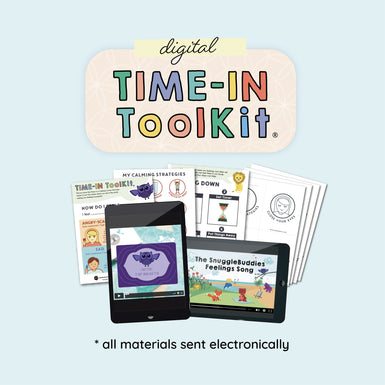Many adults mistakenly equate punishment and discipline, assuming they are interchangeable terms. However, a closer examination reveals that they hold distinct meanings and approaches.
Children are inherently prone to making mistakes, testing boundaries, and occasionally defying instructions. These behaviors are entirely normal aspects of childhood development. It is essential for adults to recognize that young children do not possess an innate sense of right and wrong. This moral compass is cultivated through a series of complex cognitive skills that evolve over time, and its development is greatly influenced by role modeling and positive reinforcement.
As responsible adults and loving care providers, we bear the crucial task of guiding children toward a sense of morality and ethical behavior as they evolve into the best versions of themselves.
Punishment
Punishing a child for doing something wrong is never the answer. Some may argue there are forms of positive punishment, but I would simply call this discipline. Punishment means to make the child suffer. Examples of punishment include scolding, spanking, enforcing even more household rules, and demanding an immense amount of labor from a child. Each of these examples has one main theme in common; they hurt instead of teach the child. Punishments hurt children... physically, yes, but also mentally and emotionally.
Children can learn to self-regulate, handle their emotions, and be in control of themselves, which ultimately leads to self-discipline. Offering punishment, rather than taking the time to teach a child right from wrong, is doing them a disservice in numerous ways.
SnuggleBuddies® Help Big Emotions & Meltdowns
Children are growing at such a fast pace, and we cannot expect them to remember all the many things they are learning. They are learning new things at school, from their friends, from their extracurricular activities, and from their families. We often assume a child is being willful in their acting out, while many times, children are simply feeling overwhelmed and dysregulated, unable to access the new social-emotional skills they are still learning.
As adults, we are still learning as well. Give yourself some grace if you slip up and resort to punishment rather than discipline with your child. Instead, stay curious about your own parenting triggers, and remember that learning how to use discipline instead of punishment in your parenting is a journey, especially if these skills were not modeled for you when you were a child.
Discipline
Discipline, which originates from the root word "disciple" focuses on teaching right from wrong by leading and guiding by example. By teaching rather than punishing, adults can turn challenging moments into teaching moments, with the added benefit of strengthening a child's sense of trust, safety, and connection. For example, going with an upset child to a calming corner when he/she is overwhelmed or having a tantrum in order to help calm their body is an affirming way for children to learn how to manage frustration, disappointment, and ultimately, to form the neuropathways they will need to be capable of self-regulation in the future.
Creating a space for children to practice calming down during a heated moment is the perfect example of positive discipline. The Calming Corner Bundle is a helpful set of guided resources for caregivers who are new to these concepts and could benefit from step-by-step support in shifting from punishment to positive discipline methods.
Communication is another key life skill children benefit from having modeled for them when they receive discipline rather than punishment. Once a child has calmed their body, it is crucial to talk to them about their feelings. Keeping this communication simple, concrete, and affirming is most conducive to their formative learning. For this reason, having a feelings chart and/or other tangible tools is ideal, assisting children as they practice putting words to their feelings, as well as the many thoughts and needs that often live underneath big feelings.
Discipline and consistency go hand-in-hand, therefore using familiar tools with young children again and again as you grow their capacity to recognize, understand, and manage their emotions is ideal, and opens up the space for children to both think and talk about what they want to do differently next time. Once calm and regulated, children can be guided through self-reflection for the learning and the growth the moment has to bring.

When we respond to the source of children's "mis" or unwanted behaviors, rather than react to the behavior (aka the symptom) alone, children naturally stop repeating the same challenging behaviors over and over.
With positive discipline, young children learn the life skills they need to grow into compassionate and resilient adults, rather than being punished for not having been born with a mastery of them.
Adult Behavior Determines Child Behavior
Children are going to do wrong from time to time, but having the idea of making them “pay” for what they have done wrong is not okay. This can result in a negative observation of themselves, being frightened of others, or never truly learning how to actually behave. Truthfully, it teaches the child it is okay to inflict pain, embarrassment, and suffering. If a child sees their parents spank their sibling, they are going to be extremely confused when they get in trouble for hitting their sibling. Adults must behave toward the child in the same way they want the child to behave. This is one of the exact reasons it is important to focus on positive parenting, rather than punitive parenting.
UNICEF has an interesting article called How to Discipline Your Child the Smart and Healthy Way. In this article, the author goes into great detail regarding the ins and outs of discipline and punishment. It states, “The evidence is clear: shouting and hitting simply do not work and can do more harm than good in the long run. Repeated shouting and hitting can even adversely impact a child’s entire life. The continued “toxic stress” it creates can lead to a host of negative outcomes like higher chances of school dropout, depression, drug use, suicide, and heart disease.”
The evidence is clear: when adults display aggressive behavior toward children, it inevitably has a detrimental impact on them. However, we possess the power to break this cycle. Instead of resorting to the punitive methods, such as corporal punishment, that many previous generations employed, we can choose more effective approaches. Raising a well-rounded child hinges on providing proper discipline, guidance... and love.
























